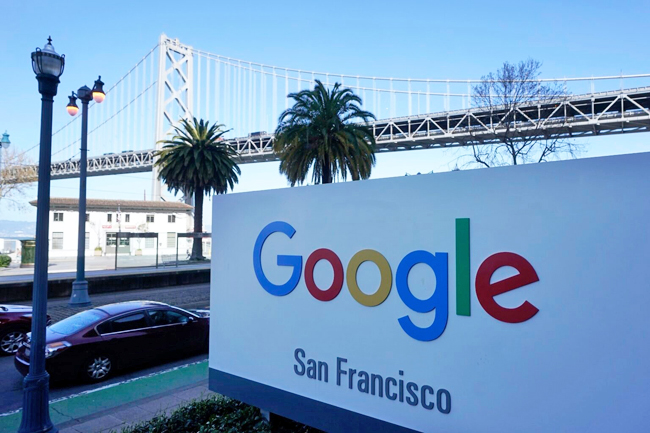AP – Google’s preeminence as an Internet search engine is an illegal monopoly propped up by more than USD20 billion spent each year by the tech giant to lock out competition, United States (US) Justice Department lawyers argued at the closings of a high-stakes antitrust lawsuit.
Google, on the other hand, maintains that its ubiquity flows from its excellence, and its ability to deliver results customers are looking for.
“It would be an unprecedented decision to punish a company for winning on the merits,” Google’s lawyer John Schmidtlein, said late on Friday afternoon in summation of the company’s closing arguments.
Justice Department lawyer Ken Dintzer told the judge “today must be the day” for him to step in and stop Google’s monopolistic behaviour, which he likened to the tactics used by Microsoft two decades ago that prompted a similar antitrust battle.
The US government, a coalition of states and Google all made their closing arguments on Friday in the 10-week lawsuit to US District Judge Amit Mehta, who must now decide whether Google broke the law in maintaining a monopoly status as a search engine.

Much of the case, the biggest antitrust trial in more than two decades, has revolved around how much Google derives its strength from contracts it has in place with companies like Apple to make Google the default search engine preloaded on cellphones and computers.
At trial, evidence showed that Google spends more than USD20 billion a year on such contracts. Justice Department lawyers have said the huge sum is indicative of how important it is for Google to make itself the default search engine and block competitors from getting a foothold.
Google responds customers could easily click away to other search engines if they wanted, but that consumers invariably prefer Google. Companies like Apple testified at trial that they partner with Google because they consider its search engine to be superior.
Google also argues the government defines the search engine market too narrowly. While it does hold a dominant position over other general search engines like Bing and Yahoo, Google said it faces much more intense competition when consumers make targeted searches.
For instance, the tech giant said shoppers may be more likely to search for products on Amazon than Google, vacation planners may run their searches on AirBnB, and hungry diners may be more likely to search for a restaurant on Yelp.
And Google has said that social media companies like Facebook and TikTok also present fierce competition.
During Friday’s arguments, Mehta questioned whether some of those other companies are really in the same market. He said social media companies can generate ad revenue by trying to present ads that seem to match a consumer’s interest. But he said Google can place ads in front of consumers in direct response to queries they submit.
“It’s only Google where we can see that directly declared intent,” Mehta said.
Schmidtlein responded social media companies “have lots and lots of information about your interests that I would say is just as powerful.” The company has also argued its market strength is tenuous as the Internet continually remakes itself.
Earlier in the trial, it noted that many experts once considered it irrefutable that Yahoo would always be dominant in search. Today, it said that younger tech consumers sometimes think of Google as “Grandpa Google”.
Government lawyers also argued the tech company should be sanctioned for the “systemic destruction of documents” they argue was done to purposefully hide evidence of monopolistic intent and practices.
Trial evidence showed that Google lawyers recommended employees ensure their work chats were not saved because of their potential legal implications.





